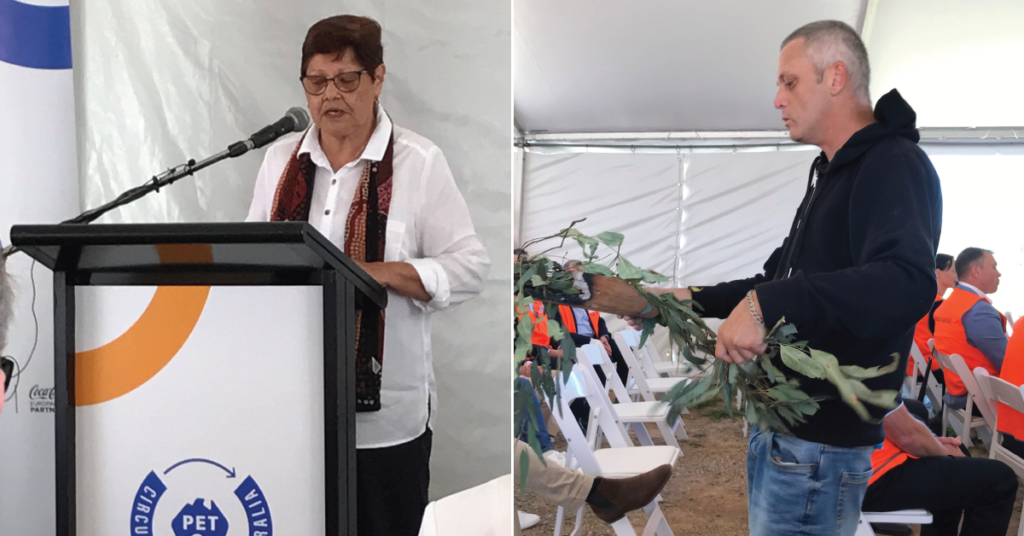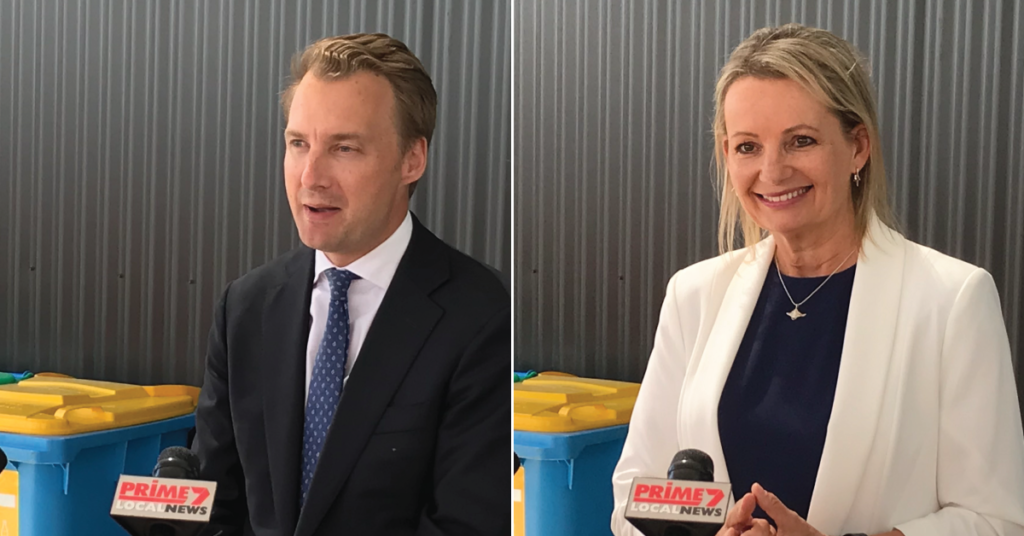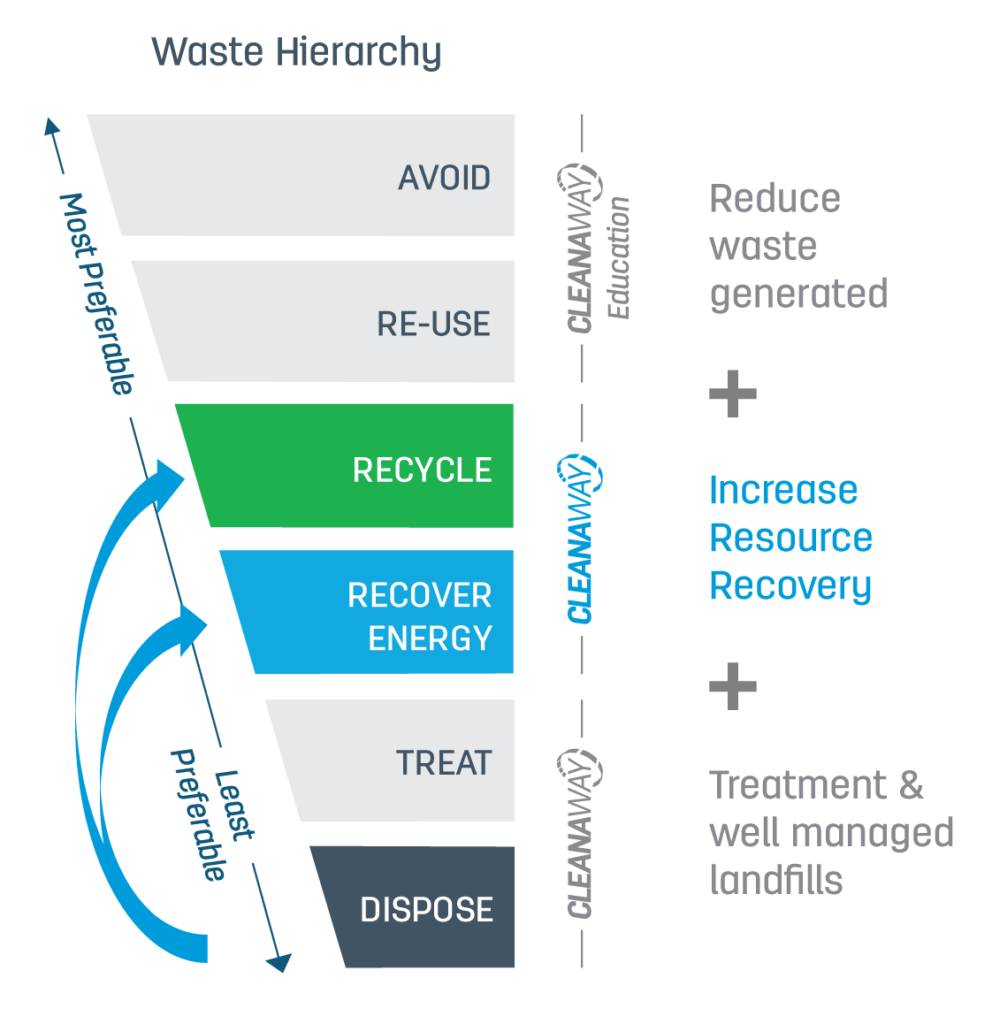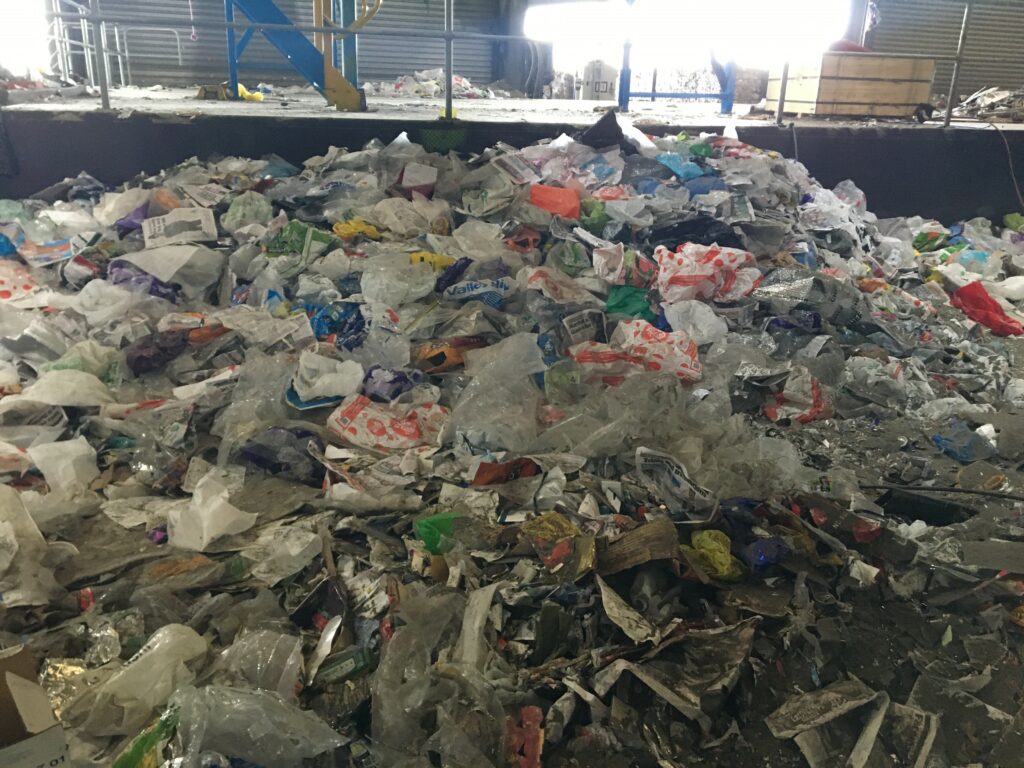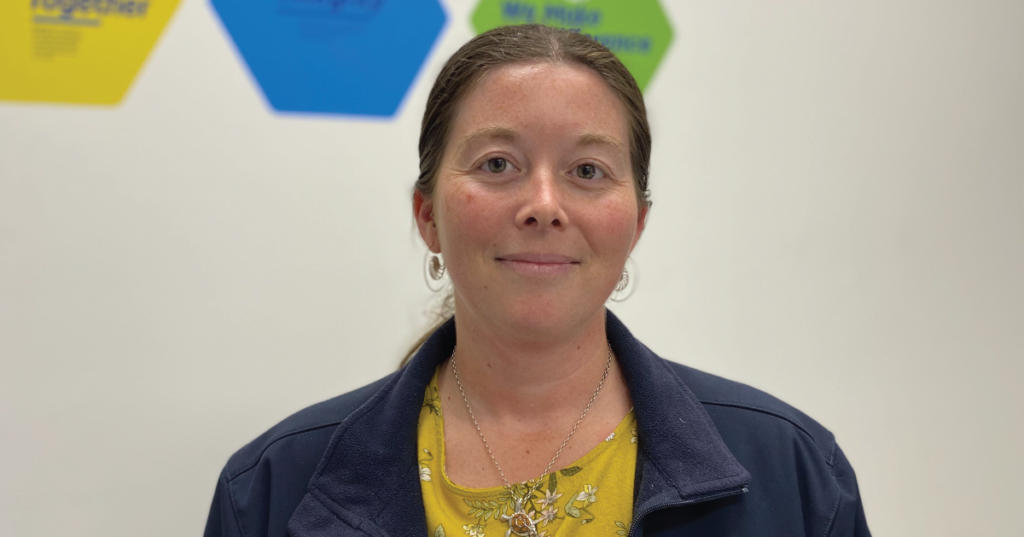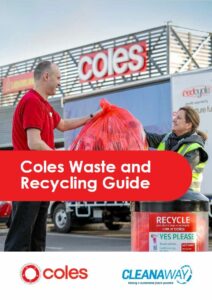Cleanaway and Brisbane City Council (BCC) sprang into action to assist in the flood clean-up operations to manage over 100,000 tonnes of waste that was generated by the flooding, including the use of temporary sites to remove flood waste from Brisbane’s streets as part of ‘Operation Collect’.
Cleanaway and Brisbane City Council (BCC) sprang into action to assist in the flood clean-up operations to manage over 100,000 tonnes of waste that was generated by the flooding, including the use of temporary sites to remove flood waste from Brisbane’s streets as part of ‘Operation Collect’.
On the morning of 28 February 2022, record volumes of rain caused the Brisbane River to peak at its highest level since 2011 and within three days, up to 18,000 homes across southeast Queensland were inundated.
Cleanaway and Brisbane City Council (BCC) sprang into action to assist in the flood clean-up operations to manage over 100,000 tonnes of waste that was generated by the flooding, including the use of temporary sites to remove flood waste from Brisbane’s streets as part of ‘Operation Collect’.
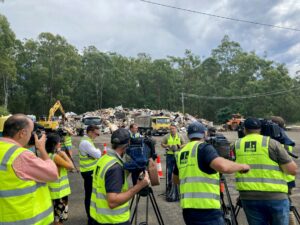
Pictured: Adrian Schrinner, Brisbane Lord Mayor addresses media to discuss ‘Operation Collect’ at Cleanaway’s Mt Coot-tha temporary site.
As most of the commercial waste infrastructure in the region was impacted by the floods, BCC commissioned seven temporary resource recovery centres across the city to assist residents with stockpiling waste from recovery and clean-up work.
Cleanaway operated three of these temporary sites, with Mt Coot-tha and Eagle Farm being the two largest sites set up for ‘Operation Collect’.
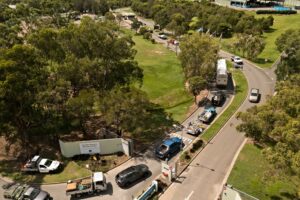
Pictured: Residents queuing up to unload flood waste at Chandler Resource Recovery Centre, one of the facilities operated by Cleanaway.
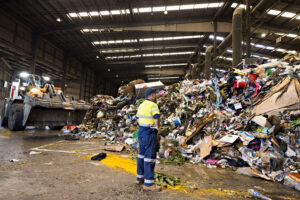
Pictured: Cleanaway staff using loaders to gather flood waste in the surge pit at Willawong Resource Recovery Centre. Surge pits provide temporary waste storage space during counter disaster operations.
Cleanaway operates five facilities for BCC – Brisbane Landfill at Rochedale and four resource recovery centres at Chandler, Ferny Grove, Nudgee and Willawong. During the flood crisis, we expanded our efforts to operate 10 facilities in total, including the three temporary resource recovery centres set up specially for ‘Operation Collect’.
BCC commissioned Cleanaway to operate two former landfills in Nudgee and Willawong. Together with Brisbane Landfill and resource recovery centres in Nudgee and Willawong, we were able to facilitate after-hours disposal and bulk haulage transfer 24 hours a day, seven days a week.
We also offered a bespoke household hazardous waste collection service for the council’s street clean-up crews. A dedicated phone number was created for the crews to call the Cleanaway hotline whenever hazardous waste was identified at any of the temporary resource recovery centres. Our Liquid and Technical Services team from Narangba was on hand to assist with this service.
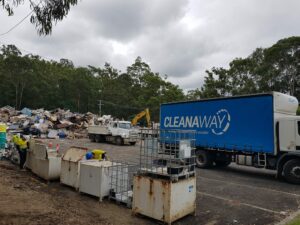
Pictured: Cleanaway’s Narangba Liquid and Technical Services team members inspecting hazardous waste before removing it from the Mt Coot-tha temporary site.
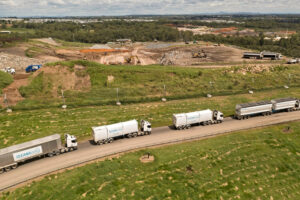
Pictured: Cleanaway fleet delivering flood waste collected from the Resource Recovery Centres to Brisbane Landfill.
During the peak of the flood recovery efforts, we tripled our workforce from 89 employees to approximately 250, including external contractors.
We deployed skilled labour from other Cleanaway sites such as New Chum and Bowhill Road. We were also supported by our Queensland Solid Waste Services teams who provided extra drivers required for the non-stop operations.
Our regional managers, safety and environment business partners and finance and administration teams were all hands on deck to ensure coordination and management of the clean-up effort.
Cleanaway processed approximately 80% to 90% of the 100,000 tonnes of flood waste with residual volumes handled by external facilities contracted by BCC. The operation ran for a total of six weeks, starting in late February and ending in early April.
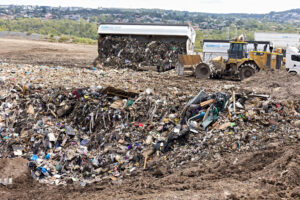
Pictured: Cleanaway’s high productivity B-double vehicles tipping flood waste at Brisbane Landfill.
Each year, Cleanaway manages over half a million tonnes of waste and recyclables for BCC – the largest local government in Australia.
Cleanaway and BCC officially entered into the Resource Recovery Innovation Alliance (RRIA) in 2018 to manage the city’s post collection infrastructure including the operation of the Brisbane Landfill and four resource recovery centres in Chandler, Ferny Grove, Nudgee and Willawong. RRIA also oversees the bulk logistics of waste and resources flows within this network as well as with third party facilities.
Contact us to learn more about how we’re making a sustainable future possible for communities and businesses across Australia.
